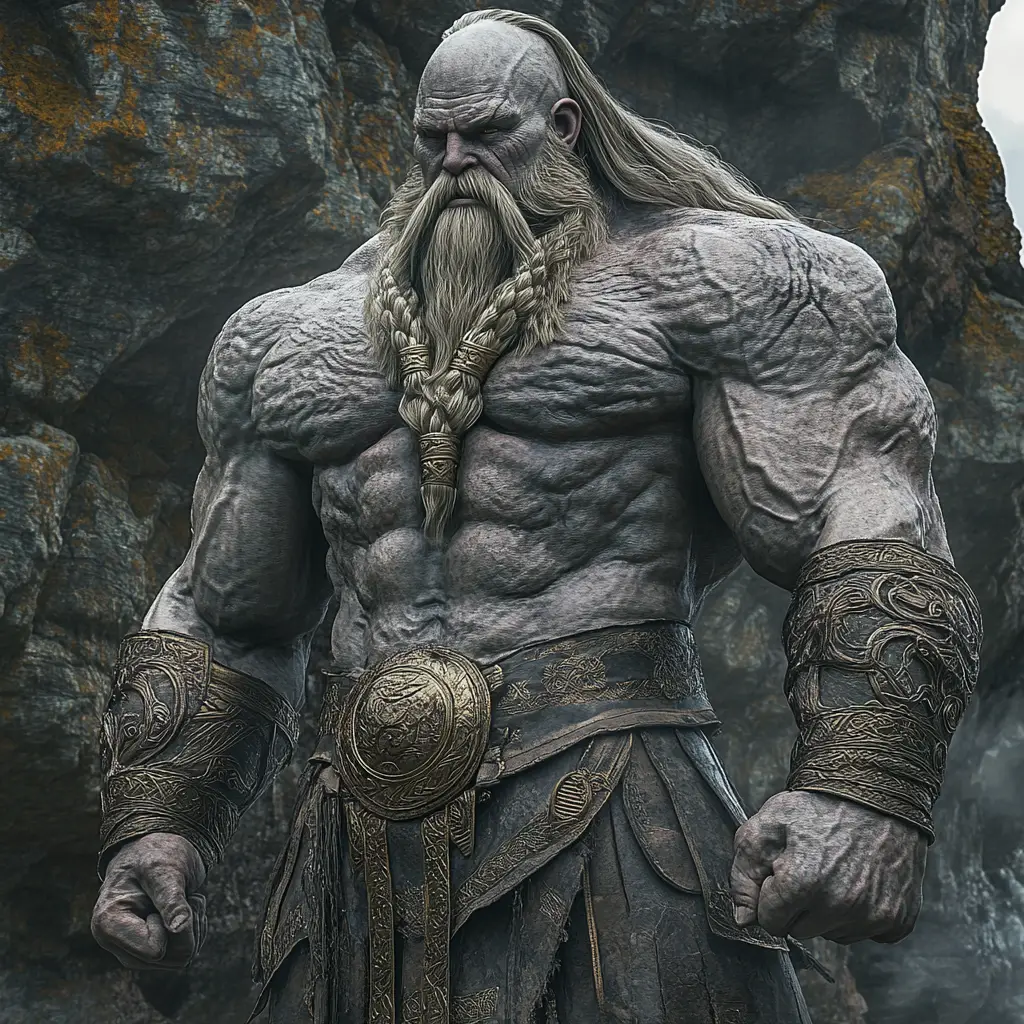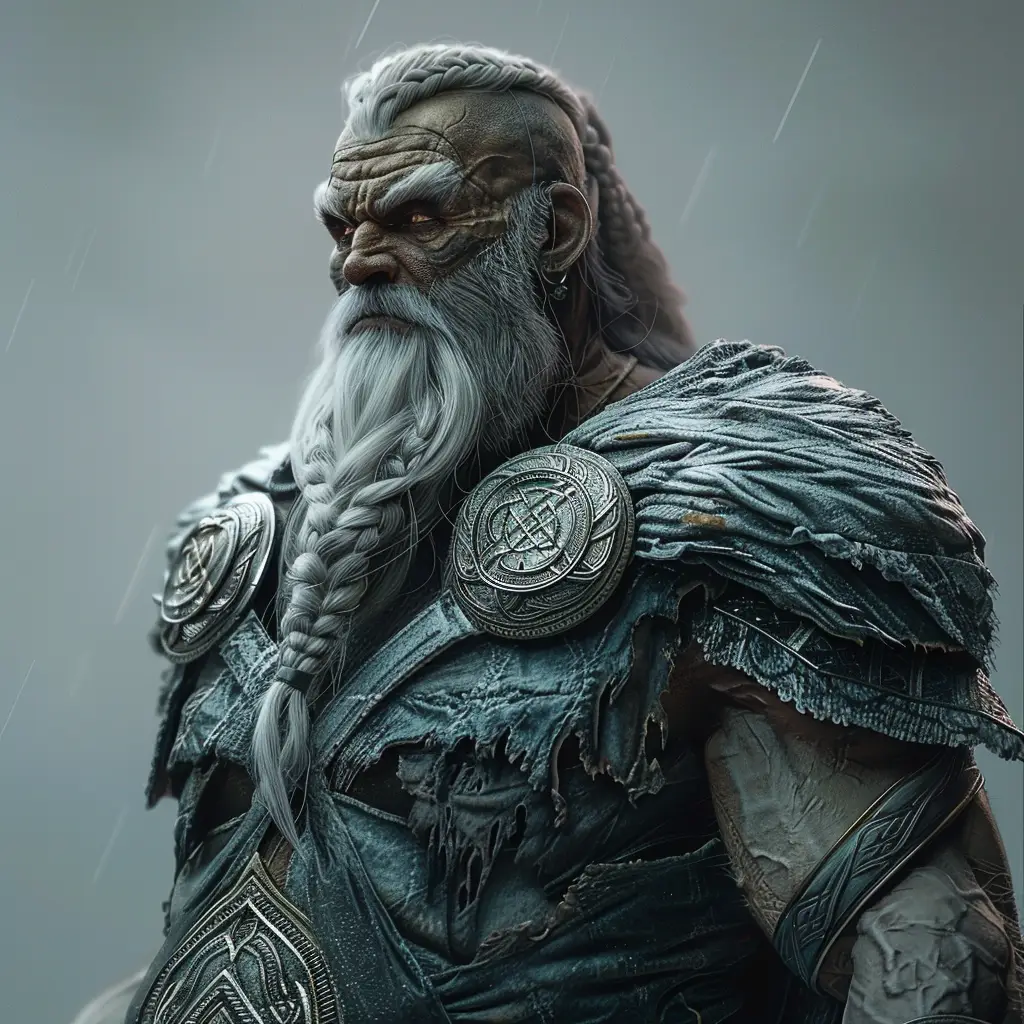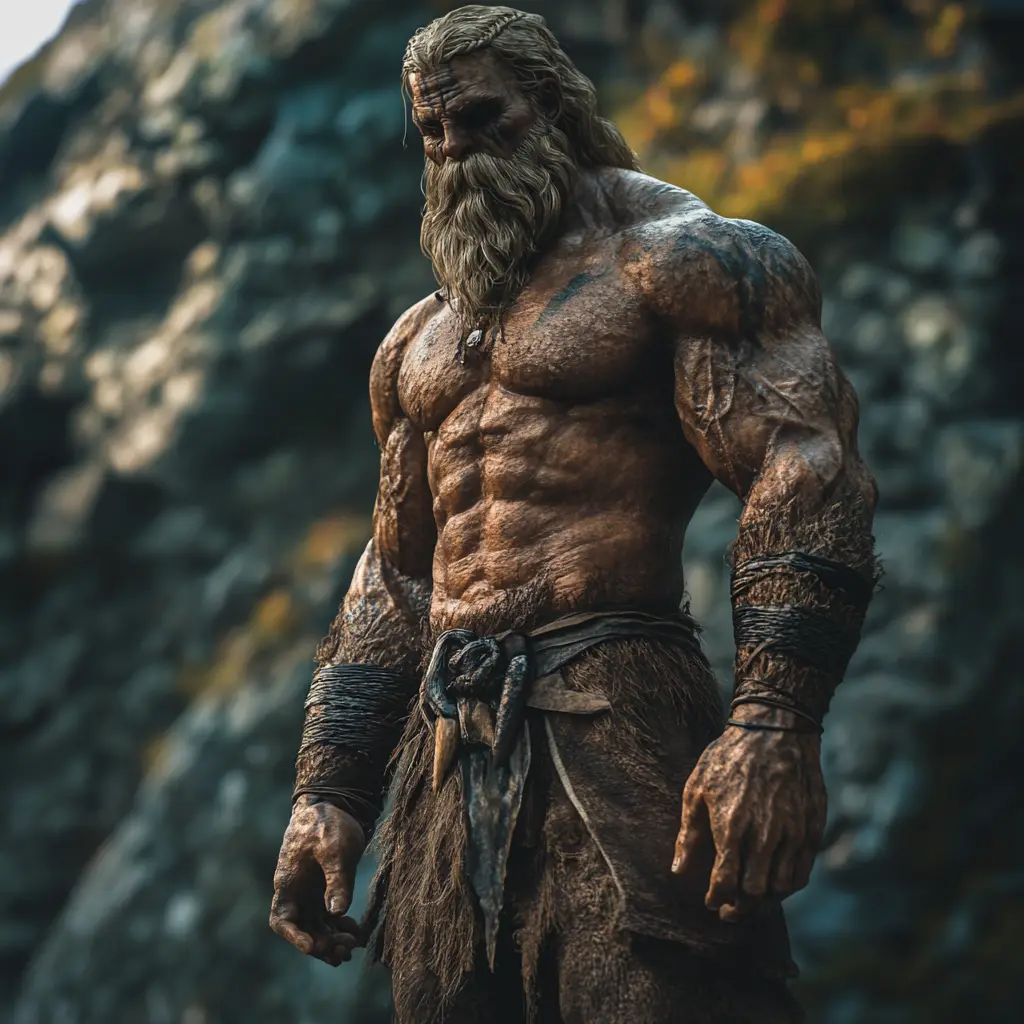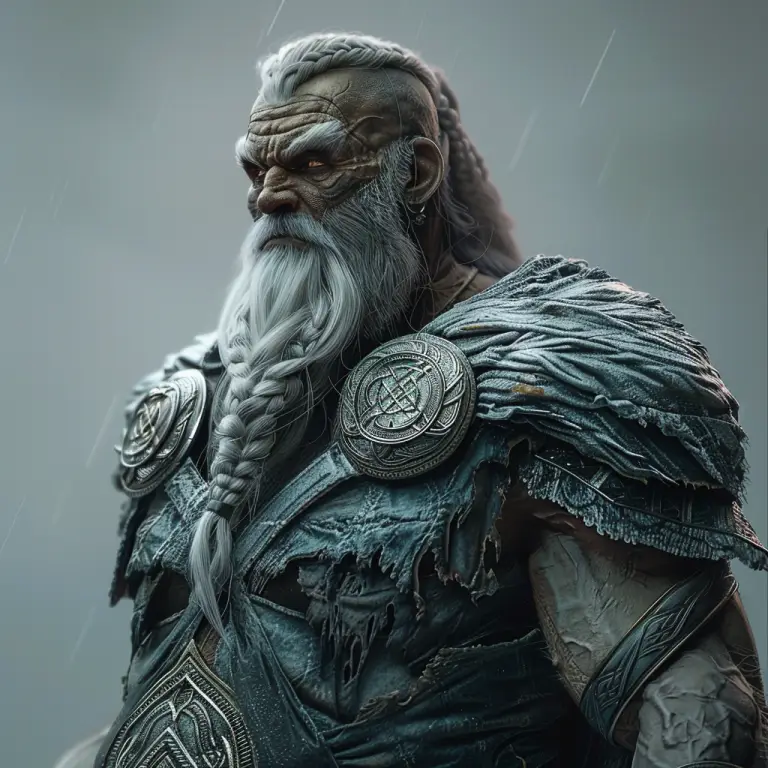Farbauti is a significant yet somewhat enigmatic figure in Norse mythology. He is a jötunn (giant) and the father of Loki, one of the most complex and famous characters in the mythological pantheon. Farbauti’s name roughly translates to “cruel striker” or “dangerous hitter,” suggesting a destructive or violent nature.
Farbauti is most well-known for being the father of Loki, the trickster god. Loki’s heritage is a mix of both giant and godly traits, as his mother, Laufey (or Nál), is described in some sources as a goddess or a being with supernatural qualities.
Father of Loki
Loki’s unpredictable and chaotic nature is often thought to reflect the volatile aspects of his parentage, particularly the fierce and dangerous attributes suggested by Farbauti’s name.
His Role in Mythology
While Farbauti doesn’t appear directly in many myths, he is considered one of the primordial jötnar, ancient beings who often represent natural forces and chaos, standing in opposition to the gods of Asgard.
Giants (jötnar) in Norse mythology generally symbolize raw, untamed elements of the natural world, and as the father of Loki, Farbauti’s destructive nature might symbolize chaotic forces such as fire or lightning—matching Loki’s volatile, changeable character.
Interpretations of Farbauti’s Name
Some scholars interpret the name Farbauti (“cruel striker”) as a reference to natural phenomena, such as lightning striking dry tinder, which could symbolize the union of Farbauti and Laufey resulting in the birth of Loki. Laufey’s name can be connected to “leaf” or “needle” (like a tree), so this symbolic interpretation may suggest Loki’s origins as the result of a destructive force (lightning/fire) striking the natural world (trees/wood).
This metaphor of lightning striking trees and starting a fire can also mirror Loki’s role as a bringer of chaos and destruction in the myths.
Family
Besides Loki, Farbauti has two other sons with Laufey: Helblindi and Býleistr, though they are much less significant in the mythology compared to Loki.
Connection to Loki
Farbauti’s chaotic and dangerous nature helps explain some of the traits seen in his son Loki, who frequently causes disorder and upheaval in both Asgard (the realm of the gods) and Midgard (the world of humans). Loki’s own ambiguous nature—as a figure who is both an ally and an enemy of the gods—can be seen as a reflection of his parentage from both a jötunn (a force of chaos) and a more gentle or subtle figure like Laufey.
Although Farbauti himself doesn’t play a large direct role in many of the myths, his legacy as Loki’s father and the embodiment of destructive natural forces contributes to the overall tension between chaos and order that is central to Norse mythology.



